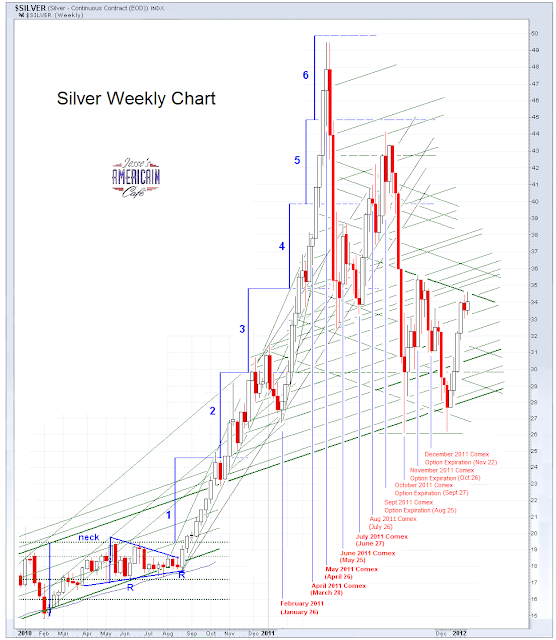Some economists were saying patently silly things about gold today.
It might be useful to review why gold proves such an irritant to financial engineers and modern monetary theorists.
Typically when this happens we are a few weeks away from a major money episode of some sort, most generally of the printing kind.
The Fed has a penchant for allowing asset bubbles to form, although that typically ends rather badly. The mispricing of risk is the antithesis of fostering a healthy market economy. It is ironic that it is so often done in the name of restoring 'confidence' which afterwards appears to be little more than cleverness and hubris, if not downright folly. Confidence obtained by deception or false premises never lasts, and is always corrosive. But it can appear to be expedient.
"I don't know where the stock market is going, but I will say this, that if it continues higher, this will do more to stimulate the economy than anything we've been talking about today or anything anybody else was talking about."A stock bubble does not stimulate real economic growth, even though it may temporarily confer the appearance of vitality. Rather it encourages malinvestment and the dissipation of resources. In the end it affects the transfer of wealth from savers and labor to speculators and financial insiders. And the corruption drives out productive investment.
Alan Greenspan
"Whoever commits a fraud is guilty not only of the particular injury to him who he deceives, but of the diminution of that confidence which constitutes not only the ease but the existence of society."The volatility on the stock indices is very subdued, if not complacent. Be careful.
Samuel Johnson







































